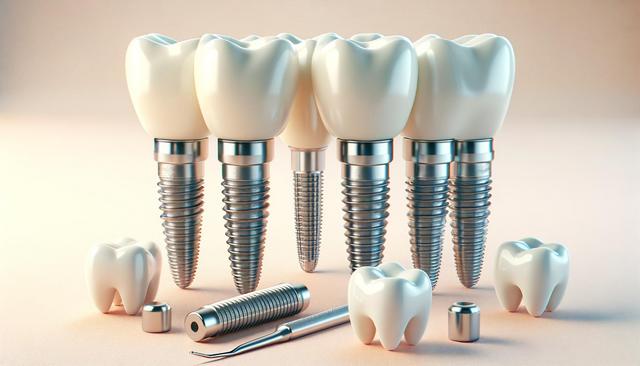Why You Might Need Dental Implants
Dental implants are a popular solution for individuals who have lost one or more teeth due to decay, trauma, or gum disease. Unlike traditional dentures, implants are designed to fuse with the jawbone, offering a more stable and long-lasting alternative. Many people seek dental implants not only for cosmetic reasons but also to improve their overall oral health and quality of life.
Some common reasons to consider dental implants include:
- Missing teeth that affect your ability to chew or speak clearly
- Discomfort or inconvenience from removable dentures
- Maintaining bone density in the jaw
- Preventing surrounding teeth from shifting
Especially for seniors, dental implants can contribute significantly to better nutrition and improved confidence. They offer a reliable option that closely mimics the function and appearance of natural teeth.
The Dental Implant Procedure Explained
Understanding the dental implant process can help ease any concerns you may have about the procedure. It typically consists of several stages, and although the timeline may vary depending on individual needs, the steps are generally consistent.
The procedure includes:
- Initial consultation: A dental professional evaluates your oral health, takes X-rays, and discusses your treatment options.
- Implant placement: A titanium post is surgically inserted into the jawbone. This serves as the root for the artificial tooth.
- Healing and osseointegration: The bone naturally fuses with the implant over a few months, creating a stable foundation.
- Abutment and crown placement: Once healing is complete, a connector (abutment) and a custom-made crown are attached.
While recovery times vary, most people can expect a few months for full healing. Pain and swelling are typically minimal and manageable with over-the-counter medications.
How to Book a Dental Implant Consultation
Booking a dental implant consultation is the first step toward restoring your smile. During this appointment, the dental provider will assess your specific needs and determine whether implants are the right solution for you. It’s essential to prepare questions in advance and bring any necessary medical and dental records.
Here are some tips for scheduling your consultation:
- Search for clinics with experience in dental implants
- Read patient reviews and testimonials
- Check if the provider offers free or low-cost initial consultations
- Ask about financing options and insurance coverage
Many dental practices now offer virtual consultations, making it easier to get expert advice from the comfort of your home. Especially for seniors or individuals with mobility issues, this can be a convenient and stress-free way to begin the implant journey.
Finding Affordable Dental Implant Options
One of the most common concerns people have about dental implants is the cost. While implants can be a significant investment, many options exist to make them more affordable. Several clinics offer payment plans, financing options, or sliding scale fees based on income.
To find cost-effective care, consider the following:
- Look for dental schools where supervised students perform procedures at reduced rates
- Check eligibility for senior discounts or community health programs
- Compare prices across multiple clinics before committing
- Ask about same-day dental implant services, which may reduce overall costs
Some providers even offer package deals that include consultation, X-rays, and follow-up care. Researching thoroughly can lead to quality treatment without exceeding your budget.
What to Expect During Recovery
Recovery is a crucial part of the dental implant process, and knowing what to expect can help you prepare mentally and physically. Immediately after the procedure, it’s normal to experience mild discomfort, swelling, and minor bleeding. These symptoms usually subside within a few days.
To support a smooth recovery, follow these general guidelines:
- Stick to soft foods for the first few days
- Avoid smoking, as it can impair healing
- Practice good oral hygiene but be gentle around the implant site
- Attend all follow-up appointments
Healing times vary depending on individual health and the number of implants placed, but most people find that they can return to normal activities within a week. Full integration of the implant into the jawbone typically takes 3 to 6 months. Seniors may require slightly longer healing times, but with proper care, dental implants can offer long-term benefits and functionality.
Conclusion: Making Informed Decisions About Dental Implants
Dental implants offer a durable and natural-looking solution for tooth replacement. Whether you’re exploring implants for cosmetic improvement or functional restoration, understanding the procedure, recovery, and cost considerations is essential. Seniors, in particular, can benefit from improved eating ability and overall oral health.
Take the time to research providers, book a consultation, and explore affordable options in your area. With the right information and support, dental implants can be a wise investment in your long-term well-being.




Leave a Reply